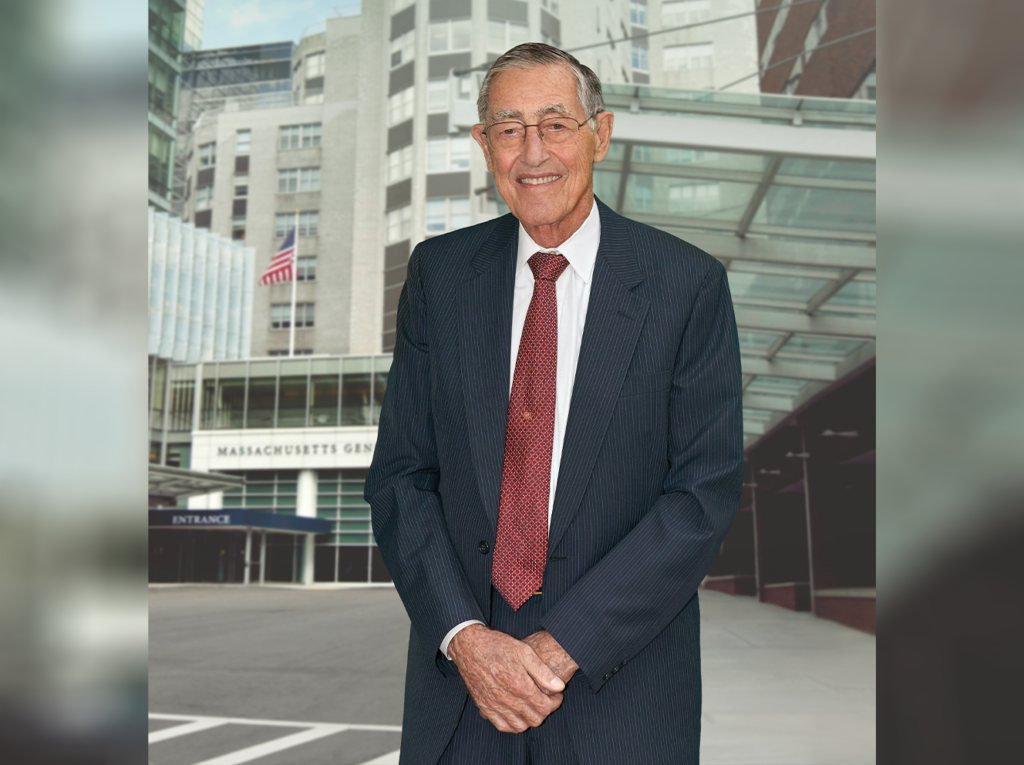Lyme disease was first identified in 1976 by Allen Steere, MD, Director of Translational Research in Rheumatology at Massachusetts General Hospital. Children in Lyme, Connecticut, were mysteriously developing juvenile rheumatoid arthritis, which usually affects fewer than 1 in 1,000 children. The cause, he and his team discovered, was a bacterial infection — spirochetal — transmitted through the bite of infected deer ticks.
Since then, Dr. Steere has spent his career researching and treating patients with Lyme disease. His research has led to tremendous advances in the diagnosis and treatment of the disease and the complex array of symptoms patients can develop — especially if the infection is not detected early.
Addressing a Growing Problem
Annual cases of Lyme disease have more than tripled in the past 20 years — more than 30,000 new cases are reported annually, but the actual number is estimated to be at least 10 times higher. Warmer winters allow deer ticks to breed faster, and more deer in suburban and urban areas bring us into closer contact with infected ticks.
To address this public health challenge, Mass General is establishing a Multidisciplinary Lyme Disease Clinical Research Program. Made possible with the support of Phillip H. Morse, Vice Chairman of the Boston Red Sox, the program will bring together experts from infectious diseases, neurology, rheumatology and other departments across the hospital to provide more coordinated care for patients and advance research toward new treatments and methods for early detection and prevention.
“Lyme disease has affected so many of our friends and family members. Their suffering and the suffering of so many made me jump at the chance to move the ball down the field toward improved prevention and treatment,” says Mr. Morse. “Developing the next generation of clinicians, researchers and faculty working on Lyme disease and other tick-borne illnesses is essential.”
A Visionary Gift to Transform the Field
In all, the Morse family’s transformational gift provides funding for an endowed chair — recently awarded to Dr. Steere — and the creation of a multidisciplinary clinic with a Lyme disease research program.
The Morse Endowed Chair in Medicine, the highest academic honor Mass General can give, provides Dr. Steere with flexible funding to pursue high-impact work. As Chair, Dr. Steere is launching the Lyme disease clinical research program, alongside Jacob Lemieux, MD, PhD, a leading physician-scientist who studies the genetics of Lyme and other tick-borne illnesses. “Jake represents the next generation of Lyme research and this gift will help us realize the vision of what they can accomplish in the future,” says Dr. Steere.
Streamlining Complex Care for Patients
Most patients diagnosed with Lyme disease are successfully treated with antibiotics and recover fully, but a small percentage of patients suffer from post-treatment Lyme syndrome, or “long-Lyme,” which prolongs fatigue, joint and muscle aches and can include difficulties with concentration and other neurological symptoms. In other patients, the disease is not detected and diagnosed for months or even years after the initial infection.
In both cases — long Lyme or late detection — more complex Lyme symptoms can mean patients are referred to multiple divisions and departments throughout the hospital — neurology, rheumatology, the Mass General Lyme Arthritis program and others.
The Morse Multidisciplinary Lyme Disease Clinical Research Program will help to change this. Patients will receive coordinated care in one location and specialists can more easily work together to decide on the best course of care, especially for complex cases. Dr. Lemieux, who cares for patients in Mass General’s Infectious Disease Division, has already begun coordinating care with Dr. Steere, who sees patients in the Rheumatology unit. Howard Heller, MD, MPH, one of the leading physicians in Boston, with nearly four decades of clinical experience, will serve as director of the clinic.
The multidisciplinary clinic will be critical to providing patients with the comprehensive care they need while advancing understanding of best practices and supporting the development of new approaches through research studies and trials.
Funding Pivotal Research
One of the questions that has confounded clinical researchers in Lyme disease is: what causes persistent symptoms in a small subset of patients after the initial Lyme infection is treated? Patients have been frustrated by the slow rate of progress in treating long-Lyme and the lack of understanding in the medical field.
“From the standpoint of the National Institutes of Health, research into persistent symptoms after treating the acute infection has been a hard sell. It would not be possible to conduct first-rate research without this philanthropic support,” says Dr. Lemieux.
The new Multidisciplinary Lyme Disease Clinical Research Program, and the flexible funding to support new research will help in this arena.
“The critical ingredient is bringing leading physician-scientists and researchers together to work on the different aspects of the disease, and new treatments and techniques,” Dr. Lemieux says. “That is exactly what the Morse gift allows.”
To learn more about how you can support the Multidisciplinary Lyme Disease Clinical Research Program, please contact us.

This story is just one example of the groundbreaking efforts taking place at Mass General, home to the largest hospital-based research enterprise in the U.S. — the Mass General Research Institute. The Research Institute encompasses and provides support to thousands of scientists, hundreds of laboratories, and helps to guide, connect and promote this unrivaled community of investigators as they advance the future of medicine, from the bench to the bedside, to the community and world.





